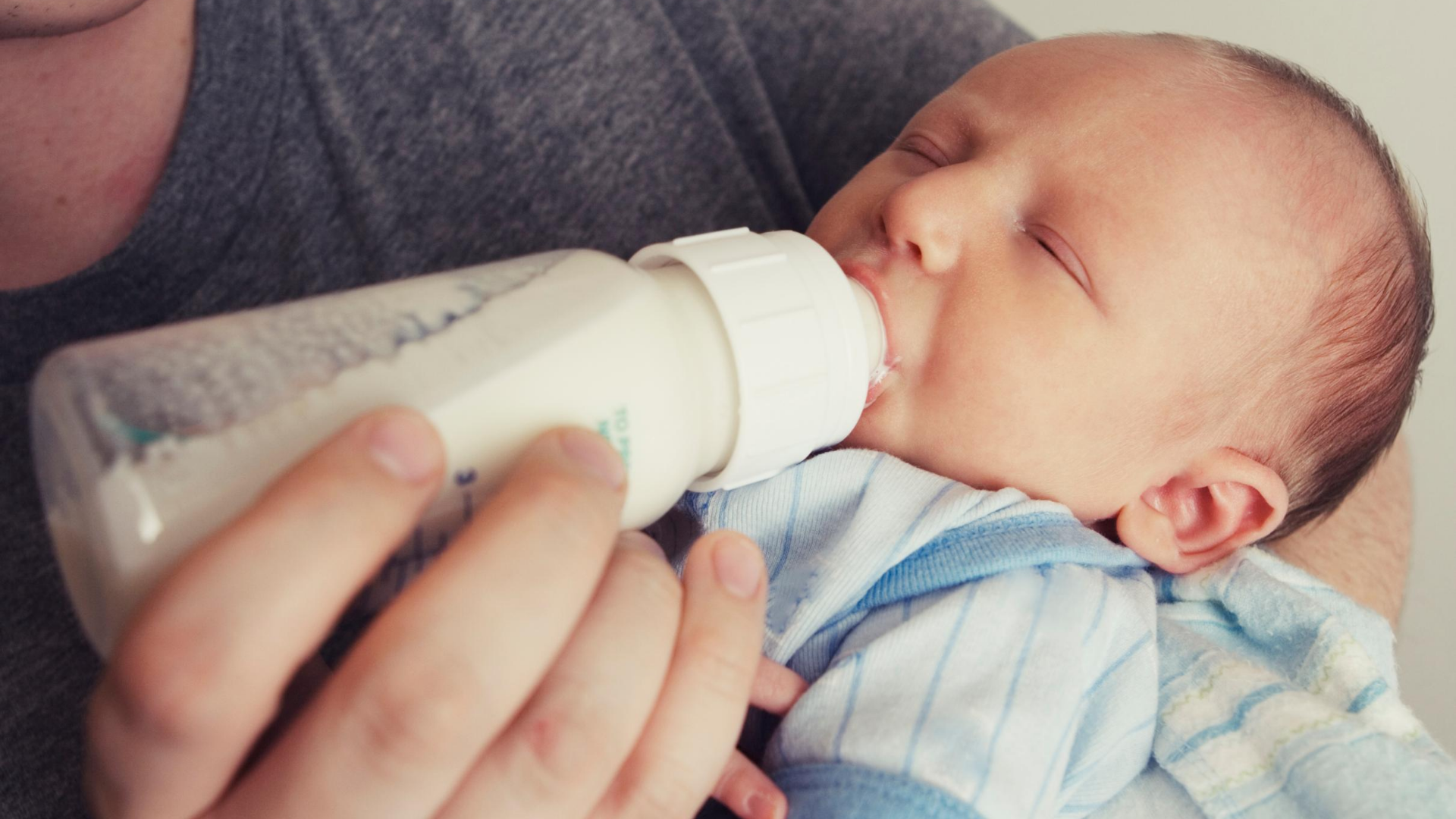Can my Baby Drink Water? Here's What You Need to Know
With the heat of the summer upon us–for the northern hemisphere, anyway!–hydration has never been more important. Expecting mamas should take special care to stay hydrated, but new mothers should be thinking about both themselves and their little one.
There has been some recent media scrutiny surrounding whether or not babies should drink water to stay hydrated in the hot weather. There's a lot of misinformation out there, so we've narrowed it down to the key facts you need to know to make the right decision for you (and your baby, of course!).
Here's what you need to know.
Here's why feeding your baby water may be a bad idea:
Even though you probably feel the urge to drink more water than normal in this heat, your baby's hydration needs can actually be met through breast milk alone. So, the main reason you should be wary of feeding your baby water? Filling their little tummies.
This causes them to drink less milk when they're being fed, which makes it difficult to get the important nutrition they need from breastmilk and/or formula. Your baby's growth is so important, and if your baby is regularly drinking water in addition to milk, they won't have the calories they need to gain weight appropriately. In turn, this can also decrease your milk supply (if you're breastfeeding), as your baby will be spending less time at the breast.
You should also be aware that giving your baby too much water can disturb their electrolyte balance, and in severe cases, this can cause health emergencies like seizures. Also, keep in mind that your baby's kidneys aren't able to properly filter tap water until the 6-month mark, leaving them susceptible to water intoxication. This sounds like scary stuff, but remember: your baby's body isn't fully developed yet, and it doesn't process water like yours.
So...how can I keep my baby cool & hydrated on hot days?
We know, we know–with the heatwave hitting parts of the Northern Hemisphere right now means that lots of mamas in our community are feeling the struggle to keep their families cool. Don't fret–we've got some tips that can help!
Make sure you're dressing your little one in light, breathable clothing during the day and at night, and if you spend time outside, make sure you provide lots of shade for baby (we love bringing a big umbrella to the park to create a shady spot for play!).
If your home has air conditioning, use it! If you're not so lucky, keep curtains drawn in sunny rooms, open windows, and make use of fans. You may want to slightly adjust your feeding schedule, too: we encourage you to offer breast or bottle more regularly to ensure that your baby is staying hydrated throughout the day.
When can babies start to drink water?
Most experts suggest that you wait until your little one has started consuming solids, at around six months. From then on, babies need 4 to 6 ounces of water a day, or just over half a cup of water.
What are the benefits of drinking water after 6 months?
Once your baby is ready to drink water, it offers the same benefits that it does to your own body! It helps to lubricate your joints, flush out waste, transport nutrients to cells, and maintain healthy blood volume. It's also a much better option than fruit juice, which quickly fills up your baby's tummy. The high sugar content can also cause cramping and diarrhea in young babies, so it's best to avoid feeding baby fruit juice until they're at least one year old.
How can I tell if my baby is dehydrated?
Keep an eye out for these symptoms in hot weather, and if you'd like, we'd encourage you to note them down so you can spot them quickly:
- Less than six wet diapers in 24 hours
- Dark yellow urine
- Cracked lips, dry skin, and sunken eyes
- Tearless crying
- Sleepiness
- Cold hands and feet
Contact your healthcare professional immediately if your baby is showing signs of dehydration.
We hope you feel empowered with the knowledge to make the right decisions for you and your little one. Stay healthy and safe, and for more tips and guidance specific to your stage of early motherhood, download our free app.

